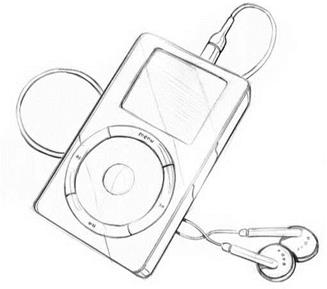|
|
In light of the opportunities that are already here in the present, there is no reason to long for unavailable crystal ball forecasts of future prospects. The earliest work of innovation is to research existing trends and to understand them in the context of customers, because it is market dynamics that provide new opportunities that will be fulfilled by tomorrow’s successful products.
New York, NY. Fredrick Marano put down Newsweek. The article on iPod’s explosive sales growth had caught his eye because he very much enjoyed his iPod. For Fred, most products were extras—good appendages, but appendages nonetheless. The iPod was different, more central. Fred remembered his first Walkman. Big, bulky, heavy (at least in comparison to nowadays). A cassette tape player that jammed and jumped as he exercised. All the hassles of having to tape LP music.
It was clear to Fred why the iPod fared so well: It was the right product at the right time. The iPod is great. Stylish and easy to use. Any music he had or wanted to buy, he could download. He had just started using iTunes, a service to download individual songs for 99 cents. The last time he purchased an individual song was back in the days of vinyl in the 1980s when he used to go to CBGBs on the Lower East Side! It took Fred awhile to feel comfortable paying for something he could not hold. He can download a song, but it exists only on his iPod or computer. He cannot touch it. But he also is not stuck with a CD full of songs he does not want to listen to anyhow.
Most of the music Fred listens to on his iPod, he copied over from his collection of CDs. Much like he used to do with his cassettes, he chuckled to himself. Well, they had the idea right, but not the medium. Now all he has to do is pop in a CD, pick a track, and click a button. The rest is magic. As far as he could figure out, it really was magic. But it worked and worked well; so, like everything else today, he will go with the flow as long as he doesn’t have to think about it.
Fred’s teenage daughter, Liz, was always getting new music on her MP3. She kept telling Fred to go on Kazaa to get his music. She got most of her music that way. CDs are so overpriced, and who needs them cluttering up her room?
Liz and her friends believed it was their right. No bureaucratic corporate giant had the right to charge 20 bucks for a CD. Most mega bands had too much money already, and most independent groups who did not play the game made no money. It was her right to listen to what she wanted whether or not big business decided to mass – produce it.
Fred did not believe in piracy for himself, but he did not make a big deal of it to Liz. She was one of a million kids doing this. But Fred did like the idea of being able to change his music selection in minutes, and to store hundreds of songs on his tiny player.
Ah, yes, the smallness of current players provides an incredible benefit. Besides being cool-looking and so intuitive, the iPod is truly small. How does it store 10,000 songs? 10,000 songs would fill 750 CDs, which would take up a bookcase in his study! Instead, he can go running with it clipped to his belt, and the quality of sound is as good as it gets.
The iPod is not the only small player, for it is the MP3 technology that allows it to be small. One of Fred’s friends at work has had an MP3 player for years now. But, then, that guy always had to have new gadgets first, even if he stayed up all night figuring them out. Fred always could tell what was coming down the road by talking with his friend, but he also waited until he knew he would not have hassles.




